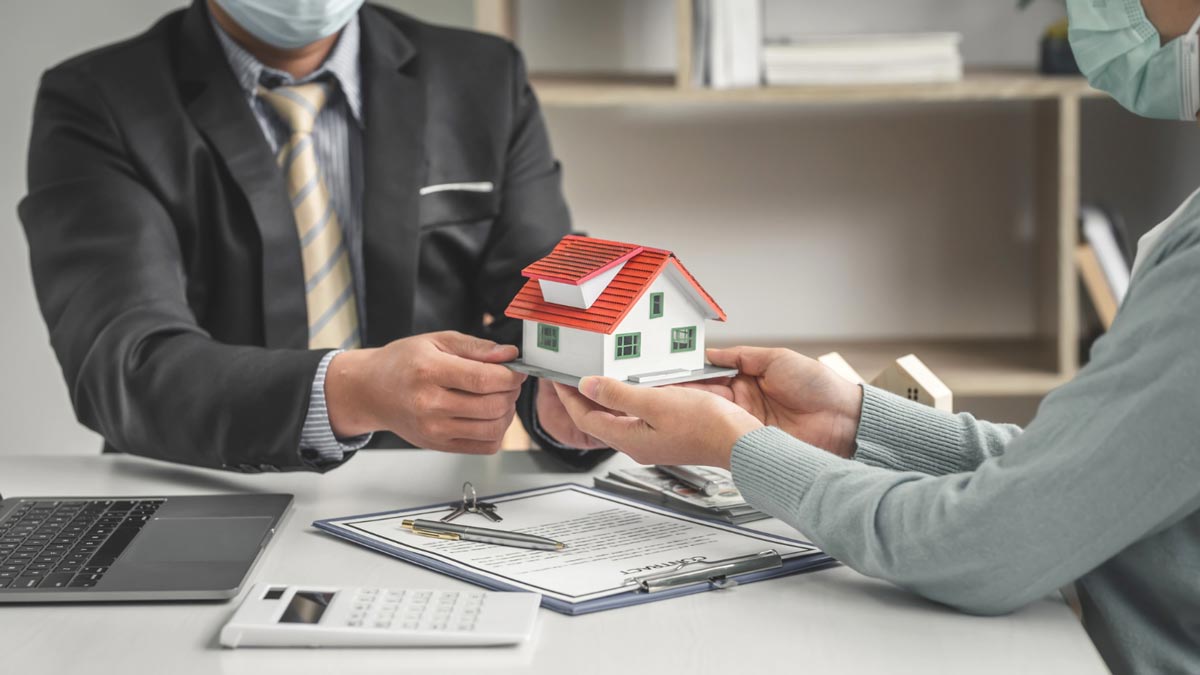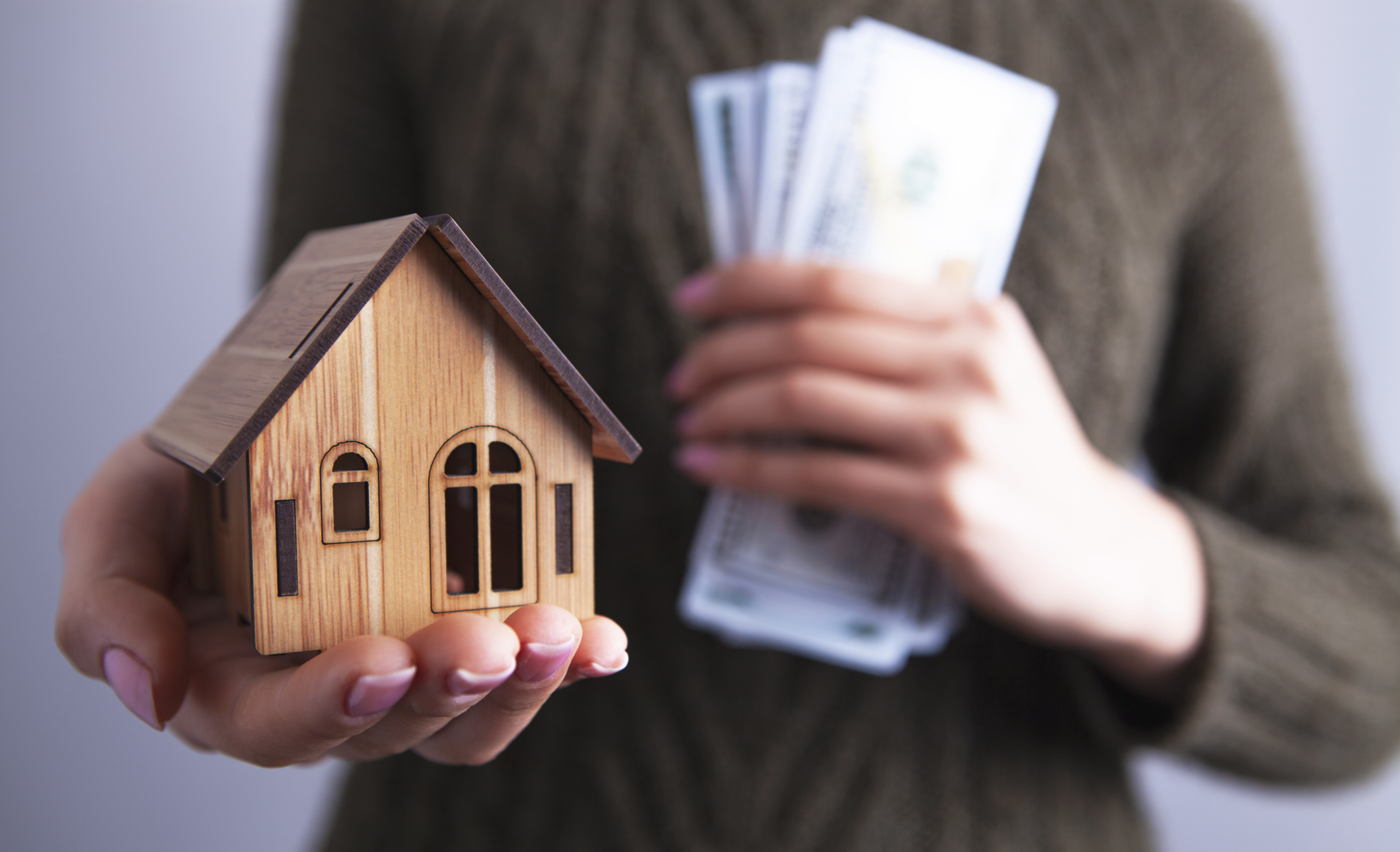How To Be A Good Landlord - Tips For Success In Property Management
Being a landlord isn't just about owning property. It's about taking care of your tenants and making sure everything runs smoothly. In this article, we'll explore some simple tips for success in how to be a good landlord in property management.
Author:Luqman JacksonReviewer:Liam EvansFeb 01, 20244.1K Shares69.6K Views

Being a landlord isn't just about owning property. It's about taking care of your tenants and making sure everything runs smoothly. In this article, we'll explore some simple tips for success in how to be a good landlordin property management. From communicating effectively with tenants to staying on top of maintenance, we'll cover everything you need to know to be a good landlord.
Understanding The Role Of A Landlord
Understanding the role of a landlord is essential for anyone considering or currently engaged in property rental. Being a landlord involves more than just owning a property and collecting rent; it encompasses a range of responsibilities, obligations, and interactions with tenants. Here's a closer look at what it means to understand the role of a landlord:
- Property ownership and management -As a landlord, you own one or more properties you rent out to tenants. This ownership comes with managing those properties effectively, ensuring they are well-maintained, safe, and habitable.
- Provider of housing -Landlords play a crucial role in housing individuals and families. Whether it's a single-family home, an apartment building, or a commercial space, landlords offer a place for people to live, work, or conduct business.
- Legal obligations - Landlords must adhere to various laws and regulations governing rental properties. This includes local, state, and federal housing laws, as well as regulations related to fair housing, lease agreements, property maintenance, and tenant rights. Understanding and complying with these legal obligations is paramount to being a responsible landlord.
- Financial management -Landlords are responsible for setting rental prices, collecting rent from tenants, and managing the financial aspects of their properties. This includes budgeting for expenses such as property taxes, insurance, maintenance, repairs, and utilities.
- Tenant relations - Building positive relationships with tenants is an integral part of being a good landlord. This involves effective communication, addressing tenant concerns and requests promptly, and fostering a respectful and professional environment.
- Property maintenance and repairs -Landlords are responsible for ensuring that their properties are maintained in a safe and habitable condition. This includes regular maintenance tasks such as lawn care, pest control, and HVAC servicing, as well as addressing any repairs or issues that arise during the tenancy.
- Enforcement of lease agreements -Landlords create lease agreements that outline the terms and conditions of the rental arrangement. This includes details such as rent amount, lease duration, pet policies, and rules regarding property use. Landlords must enforce these agreements fairly and consistently.
- Risk management -Being a landlord comes with certain risks, such as property damage, non-payment of rent, or legal disputes with tenants. Understanding these risks and taking steps to mitigate them, such as obtaining insurance coverage and conducting thorough tenant screenings, is essential for protecting your investment.
Importance Of Being A Good Landlord
Being a good landlord is not only beneficial for tenants but also essential for the success and sustainability of your rental property business. Happy tenants are more likely to stay longer in your property, reducing turnover and vacancy rates. By being responsive to their needs, maintaining the property well, and treating them with respect, you can foster a positive tenant-landlord relationship that encourages long-term tenancy.
Word-of-mouth recommendations can significantly impact your property's reputation. Being known as a good landlord who is fair, reliable, and attentive to tenant concerns can attract more prospective tenants and enhance the perceived value of your rental properties in the market. Additionally, being a good landlord means understanding and complying with all relevant laws and regulations governing rental properties.
This not only helps you avoid legal trouble but also mitigates risks associated with non-compliance, such as fines, penalties, and lawsuits from tenants. Good landlords prioritize the maintenance and upkeep of their properties, which helps preserve their value over time. Regular maintenance not only ensures the safety and comfort of tenants but also minimizes the risk of costly repairs or damage caused by neglect.
Well-maintained properties with satisfied tenants are more likely to generate steady rental income. Additionally, good landlords are proactive in addressing any financial issues promptly, such as collecting rent on time, handling security deposits responsibly, and budgeting for necessary expenses. Being a good landlord contributes to the overall well-being of the community by providing safe, decent, and affordable housing options.
This helps improve neighborhood stability, fosters community cohesion and supports economic development. For many landlords, being good at what they do brings a sense of personal satisfaction and fulfillment. Building positive relationships with tenants, overcoming challenges, and seeing the positive impact of your efforts can be rewarding experiences.
Additionally, being a good landlord can enhance your professional reputation and open up opportunities for growth and expansion in the real estate industry. By acting responsibly and ethically as a landlord, you can protect yourself from legal liabilities and potential lawsuits. Fair treatment of tenants, adherence to lease agreements, and compliance with housing laws help shield you from legal disputes and claims of discrimination or negligence.
Tips For Being A Good Landlord
Landlords often bear the brunt of negative perceptions, with many tenants quick to recount tales of past tyrannical rental experiences. Unfortunately, this stigma isn’t always warranted. Yet, overcoming this inherent contempt for the profession is challenging. Thankfully, demonstrating professionalism and fairness is within reach with just a few key strategies. Here are some tips on how to be a standout landlord:
Treat It Like A Business
Your property is your livelihood. Treat it as such by implementing systems to handle various scenarios. From rent collection to maintenance issues, having organized processes in place ensures smooth operations. Even when you're away, ensure tenants have a point of contact for emergencies.
Don’t Let To Bad Tenants
Avoid the temptation to fill vacancies hastily. Conduct thorough tenant screenings to weed out problematic renters. Dealing with unreliable tenants can strain your resources and breed mistrust. A rigorous screening process pays off in the long run.
Meet Safety Standards
Fulfill your legal obligations by adhering to safety standards. Regular checks by certified professionals for gas and electrical systems, along with properly functioning alarms, are a must. Document these activities and make them readily accessible to tenants.
Create A Personalized Tenancy Agreement
While standard agreements cover essentials, consider customizing yours for clarity. Seek legal advice to ensure compliance and include details on maintenance responsibilities to prevent disputes. Safeguard tenant deposits in recognized schemes.
Be Approachable
Establish a positive landlord-tenant relationship by being accessible and attentive. Personally welcome new tenants, provide the necessary information, and offer your contact details for inquiries or concerns. Demonstrating a proactive approach fosters trust and satisfaction.
Get Things Done
Promptly address tenant concerns or maintenance issues. Communication is key; inform tenants of progress or delays and prioritize quality repairs. Building a network of reliable tradespeople ensures timely resolutions without compromising on quality.
Keep Your Distance
Respect your tenants’ privacy and space. While it’s essential to maintain your property, avoid frequent, unannounced visits. Schedule inspections with proper notice and follow established procedures. Striking a balance between oversight and respect builds tenant trust and comfort.
Small Touches
Implementing small touches can be a powerful strategy for landlords looking to improve their reputation and leave a positive impression on tenants. These thoughtful gestures can go a long way in fostering goodwill and tenant satisfaction. For instance, a landlord in London garnered praise for welcoming new tenants on moving day with cups of tea or coffee from a local café - a simple yet appreciated gesture. Here are some other small touches that can make a big difference:
- Provide a local area tour -Offer new tenants insights into the neighborhood by giving them a tour of nearby amenities, restaurants, and transportation options. Some landlords even go the extra mile by providing a walking tour, helping tenants feel more at home in their new surroundings.
- Stock up on essentials -While not a significant expense, providing essentials like toilet paper, soap, and cleaning supplies can make moving in more convenient for tenants. This thoughtful gesture demonstrates a commitment to tenant comfort and convenience from the outset.
- Maintain a neat appearance -Presenting yourself in a professional and tidy manner enhances your credibility as a landlord. While you need not wear a suit at all times, dressing neatly conveys a sense of professionalism and respect for your role.
- Stay calm and professional -Responding to tenant issues with patience and professionalism is essential for maintaining positive relationships. Even if a problem arises that disrupts your day, handling it calmly and professionally reinforces your reliability and commitment to tenant satisfaction.
- Join an accreditation scheme -While not mandatory, membership in a landlord accreditation scheme signals a commitment to professionalism and quality in the industry. It enhances your reputation and can serve as a valuable endorsement of your property management practices.
How To Be A Good Landlord - FAQ
How Do I Become A Morally Good Landlord?
Being polite to your tenants will encourage positive interactions. Meeting safety and moral standards is imperative when forging long-term, committed tenants. They will need to feel respected and in turn, they will respect you and your investment.
Should You Be Nice To Your Landlord?
Building mutual respect and understanding makes the rental process go smoothly. It also lays the foundation for peacefully solving disputes. Getting along with your landlord can make renting a positive experience. This emphasizes how important it is to maintain this bond immediately.
What Does A Landlord Do?
A landlord is a person or entity that owns real property and then leases it out to tenants in return for rent payment. A landlord can rent to either residential or commercial tenants depending on zoning restrictions and the type of property.
Conclusion
Being a good landlord is all about taking responsibility and being proactive. By following the tips outlined in this guide, you can create a positive rental experience for both you and your tenants. Remember, being a good landlord isn't always easy, but with dedication and effort, you can excel in property management and build a successful rental business.

Luqman Jackson
Author

Liam Evans
Reviewer
Latest Articles
Popular Articles

